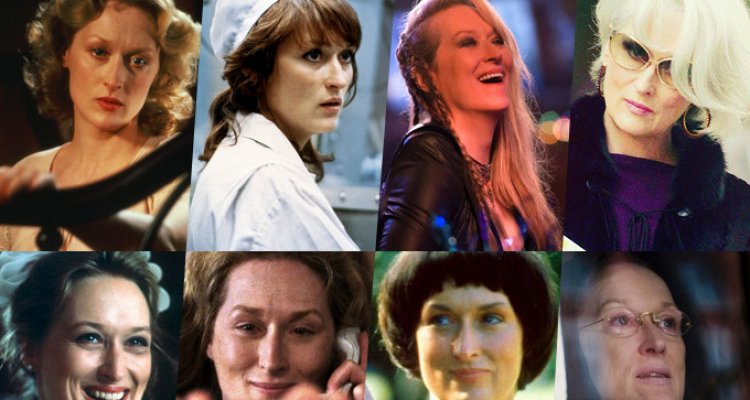“Kramer Vs. Kramer” (1979)
After her breakout in “The Deer Hunter,” Streep turned a few more heads inWoody Allen‘s “Manhattan,” before inducing whiplash in just about anyone who saw “Kramer Vs. Kramer.” Considering it was a Best Picture winner that also bagged her first Oscar (alongside her brilliant co-star Dustin Hoffman),everyone saw “Kramer vs Kramer.” Even though her total screen minutes barely reach double digits, and even though she’s playing ostensibly the less sympathetic character (a mother who abandons her child—the horror!), Streep’s Joanna somehow breaks your heart while at the same time representing a clarion call for the women’s issues Streep would champion offscreen as a well as on: “All my life, I felt like somebody’s daughter, somebody’s mother, somebody’s wife,” she says. In fact, Streep revised the story with writer-director Robert Benton to make Joanna’s point of view more balanced, and the result is a film that inspired years of debate over custody rights and the mother vs. father dichotomy. One thing that was not so debatable: it established Streep’s reputation for tugging at the heartstrings in a film’s final moments with the kind of emotional control that could make boot camp drill instructors weep like babies.

“The French Lieutenant’s Woman” (1981)
A novel long thought to be an unfilmable due to its metaphysical and supremely unpredictable structure, John Fowles‘ “The French Lieutenant’s Woman” is expertly realized on film thanks to Karel Reisz‘s fearless direction and Harold Pinter‘s exemplary script adaptation, but it needs a versatile and surprising actress to make its tricksiness work. Playing with Victorian notions of romance and using every cinematic tool at its disposal—Carl Davis‘ atmospheric, woebegone score, Freddie Francis‘ gorgeous cinematography—the film becomes a meta-examination of the complexities of womanhood and love, all pivoting around the dual performances by Streep. Cementing her status as one of the most formidable leads in Hollywood, Streep balances the contemporary, urbanite mannerisms of Anna with the stifled, 1800s affectations of Sarah Woodruff, accessing common truths and wild contrasts between the two women, yet making them both feel primarily real, complex and of their time. From film to film, Streep’s subsequent career would be variegated, but “The French Lieutenant’s Woman” is still a rarity in allowing her to stretch her wings so expansively.
“Sophie’s Choice” (1982)
“I can’t choose! I can’t choose!” The barbarism, depravity, and simple dehumanizing evil of that climactic scene in “Sophie’s Choice” is so indelible that the title itself has become a byword for an impossible and grotesquely unfair dilemma. Streep’s performance in that scene alone would be enough to establish a career: it brought her second Oscar (her first for Best Actress) and made good on Streep’s heartfelt petitioning for the role (she tracked down director Alan J. Pakula after reading an early transcript and literally begged him for the role of Sophie Zawistowsk). His acceptance paved the road for movie magic: Streep’s ferociously raw attachment to the role is felt in every word, wayward glance, quivering lip and stunted sigh. Without a pinch of hyperbole, it is one of the greatest screen performances of the 20th century—her Polish accent is perfect, and it’s only a testament to how monumental she is every time she’s on screen that one of Kevin Kline‘s career-best performances comes in distant second. Say what you will about the film’s weaker aspects (it sure doesn’t look like Peter MacNicol begged for his role), but to this day, it’s still possibly the defining role for Streep, not only as a checklist of Streepisms—tragedy, romance, accent—but also for its inarguable greatness.

